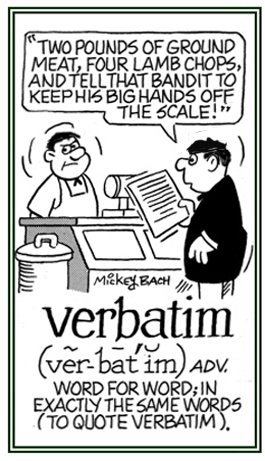Latin Proverbs, Mottoes, Phrases, and Words: Group V
(classical-language maxims, slogans, adages, proverbs, and words of wisdom that can still capture our modern imagination)
Expressions of general truths: Latin to English maxims, proverbs, and mottoes
All entries are from Latin unless otherwise indicated.
Another Roman way of saying, "goodbye".
A guide and constant companion. Today it designates a special kind of reference work, a handbook, or manual, something ready and close at hand, like a guidebook. It usually contains information that is frequently consulted and could also refer to a pocket calculator, a portable dictating machine, or even a personal computer.
Also translated as, "It is tough to be a loser." This statement is attributed by Livy to Brennus, a chief of the Gauls forced to surrender to the Romans in 390 B.C. It is reported that as he surrendered his sword, he said, Vae victis.
Used when addressing one person. Also see Valete (plural) and Ave atque vale.
Also translated as, "Take it for what it is worth." A proper statement to make when one passes on information of doubtful authenticity.
Used when addressing two or more people.
Meaning, "an all-out effort". Also presented as remis velisque.
Motto of the University of Toronto, Toronto, Ontario, Canada.
From the University of Toronto's Web site: "The form of the crest as it exists today, was adopted by the University of Toronto in 1917 when the Board of Governors of the University, on account of the many incorrect forms in common use, applied to the College of Heralds for a correct emblazoning of the Arms of the University of Toronto and of University College.
The motto velut arbor aevo is generally translated "As a tree in the passage of time" in the University's motto.
Attributed to Julius Caesar's summary of his swift victory at Zela in 47 B.C. over King Pharnaces of Pontus in the Pontic campaign; according to Plutarch; but Gaius Suetonius Tranquillus, A.D. 69?–A.D. 140?, a Roman biographer and historian, doesn't ascribe the words to Caesar, saying only that they were displayed before his title after his victories at Pontus.
A translation from a Greek statement ["Night that puts to rest the works of men" by Apollonius Rhodius, Argonautica (c. 225 B.C.)] as translated in The Vulgate version of John, ix, 4. (c. A.D. 70) from the New Testament part of the Bible.
Also translated as: "Spoken words fly through the air, but written words endure" or "Get it down on paper."

2. Etymology: from Latin verbum, "word."


Go to this Word A Day Revisited Index
so you can see more of Mickey Bach's cartoons.
![]() Units of mottoes and proverbs listed by groups: A to X.
Units of mottoes and proverbs listed by groups: A to X.

